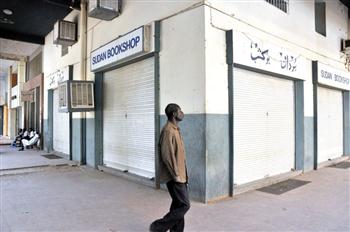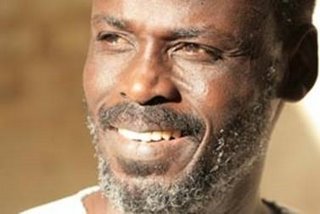Sudanese author claims books seized at Khartoum book fair
By Toby Collins
October 11, 2012 (LONDON) – A world renowned Sudanese author on Thursday claimed that his material has been confiscated by security services at an international book fair held in Khartoum.

In the wake of recent regional revolution there has been a crackdown on freedom of speech in Sudan, for which it already has a poor track record. Neighbouring Egypt and Libya have both seen the dramatic ousting of entrenched regimes.
Amnesty International’s Africa director, Erwin van der Borght said in May that “the pattern of harassment and intimidation of critics of the government has intensified since January 2011.” He also claimed that since May 2011 15 newspapers have been shutdown, 40 newspaper editions have been confiscated, eight journalists have been arrested and two banned from writing.
Part of the problem is the freedom of interpretation afforded to security services by the vagueness of the law under which press and publications are policed.
Article 5 of the Press and Publications Act states that “no restrictions” be placed upon publications “save as maintained in this Act with regards to national security protection, public order and health”.
 “Banning my work is a political issue,” Sakin told AFP. His displayed work included short stories and novels covering the conflict in Darfur, the plight of seasonal workers in east Sudan and the poisoning of street children. It was published in Egypt and Syria and has been translated in English, French and German.
“Banning my work is a political issue,” Sakin told AFP. His displayed work included short stories and novels covering the conflict in Darfur, the plight of seasonal workers in east Sudan and the poisoning of street children. It was published in Egypt and Syria and has been translated in English, French and German.
Since two rebel movements took up arms against the Khartoum government in 2003, 400,000 people have been killed and 2.5 million displaced by the conflict, according to the UN Human Rights Council.
Over a three day period in June 2011, 61 homeless people between 13-25 died in Khartoum due to poisoning. Sudanese authorities claim
East Sudan, which has the highest concentration of refugees in the country, remains underdeveloped despite the assurances of a 2006 peace agreement signed by the Eastern Front rebels and the Government of Sudan.
There is speculation about the root causes of the comparative lack of momentum in Sudanese civil dissent; Libya also had a tight grasp of its domestic publications. Some argue that the systematic subjugation of the Sudanese middle class has left the country without the traditional driving force behind political paradigm shifts – a sector of society which Sakin represents.
(ST)
